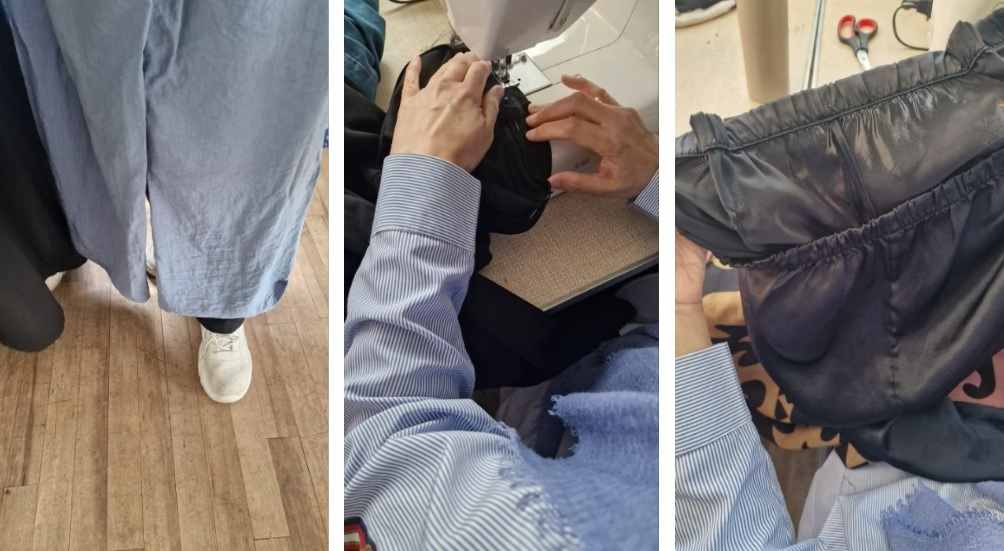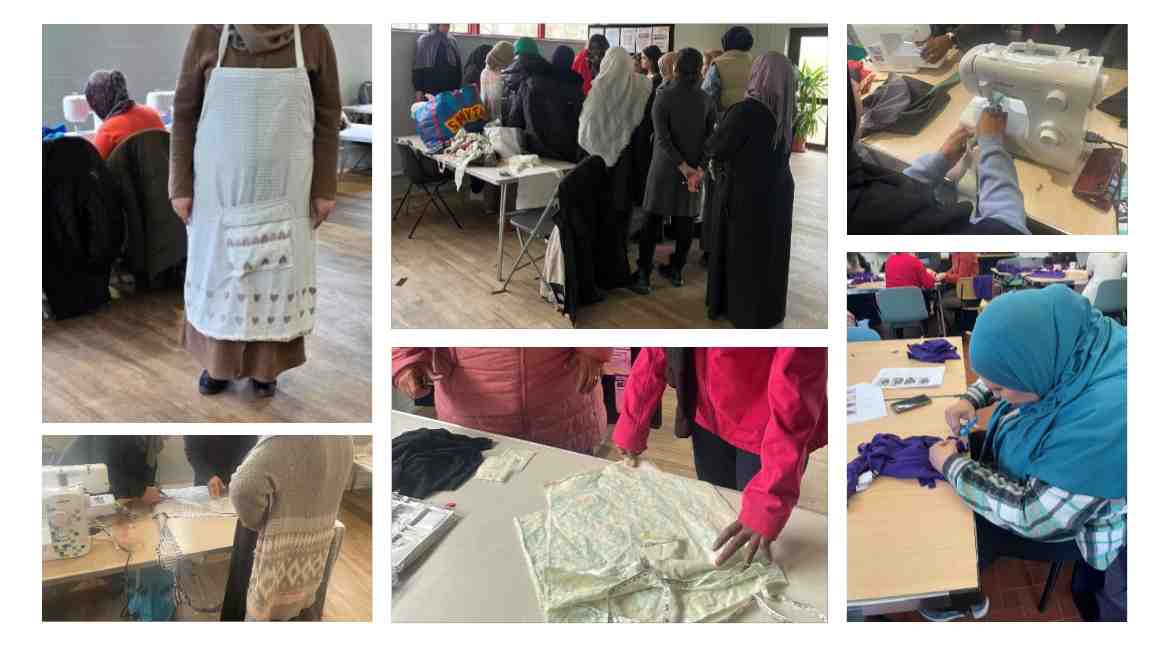Sustainable Threads: Building Sustainable Communities, Stitch by Stitch
Sustainable Threads is a vibrant community-led initiative in Hulme teaching essential skills in clothing repair, upcycling, and sustainable living led by Dr Ghada Soliman.

Each one of us interacts with fashion because textiles are so deeply woven with our everyday lives. Fashion serves as a powerful form of communication, expressing who we are and reflecting broader histories of social, economic and cultural change.
It is also big business. In the UK, fashion contributes £62bn, the equivalent of £1 in every £34 of the country’s total gross value added (GVA) (UKFT and Oxford Economics).
Textiles traverse national borders, contributing to global and local economies - yet often entrenching patterns of uneven development. Once the birthplace of the industrial revolution, today, as few as 3% of clothes worn in Britain are manufactured here. This global footprint, impacting both the environment and the well-being of workers, means that fashion is one of the most polluting industries.
The fashion industry churns out up to 8% of global greenhouse gas emissions, and every second, the equivalent of a garbage truck full of clothing is incinerated or dumped into landfills (Ellen MacArthur Foundation).
“The good news is that it’s not too late to build a more circular, more sustainable fashion sector… But we need everyone pulling together if we’re going to make the systemic change necessary to transform the fashion industry into a force for environmental good.”
Elisa Tonda, Chief of the Resources and Markets Branch of the United Nations Environment Programme (UNEP).
Systemic change often starts at a local level. Community-led initiatives help to raise awareness and foster sustainable skills, preserve traditional craftsmanship and local manufacturing, and foster local networks and resilience.
About Sustainable Threads
Sustainable Threads is a vibrant community-led initiative in Hulme teaching essential skills in clothing repair, upcycling, and sustainable living led by Dr Ghada Soliman.
Designed to support asylum seekers, marginalised groups, and residents in Manchester, the project aims to reduce textile waste, promote sustainability, and build community connections through free workshops, equipping participants with hands-on skills as well as fostering confidence, social inclusion, and self-reliance.
By teaching participants clothing repair skills, Sustainable Threads aims to empower communities with the knowledge for environmentally conscious living, as well as saving money and providing opportunities for income generation.
The project included 10 creative hands-on workshops delivered by expert designer Kenechukwu Umeh and a series of pop-up repair cafés across the city, creating dynamic spaces for collaboration with participants from diverse backgrounds. Participants spent time in Manchester Museum’s social justice and environmental action hub and the University of Manchester campus, including the Fashion Retail Innovation Lab, testing novel technologies such as 3D body scanning.
The first phase culminated in a ‘Celebratory Lunch, Showcase, and Repair Café’ event where the Sustainable Threads group presented their upcycled and repaired creations, highlighting achievements across the project. Over 50 people attended the celebration, including Deputy Lieutenant Professor Erinma Bell.
Through the upskilling of the Sustainable Threads participants, the project has strengthened community ties, raised awareness of the environmental impact of fast fashion, and successfully diverted 30kg of clothes from landfill. Participants unanimously reported a positive experience in terms of wellbeing, personal development and upskilling, with 100% reporting: greater confidence, new friends, new skills and a greater awareness of utilising sewing to earn a living. All participants said they had fixed or repaired clothes to extend their use, with many reporting upcycling old clothes or fabrics, and choosing second-hand clothing.

